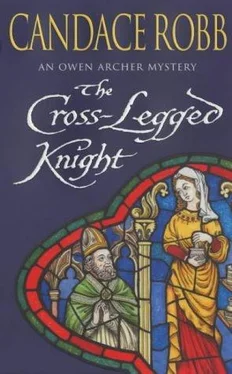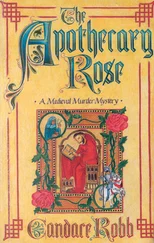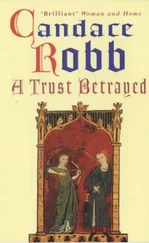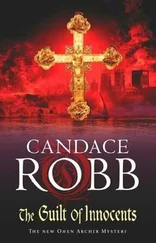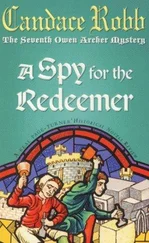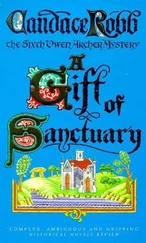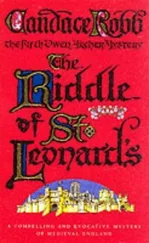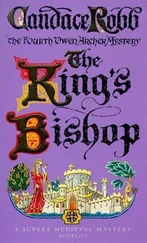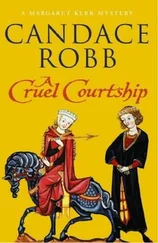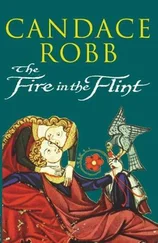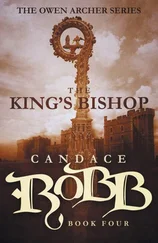Candace Robb - The Cross Legged Knight
Здесь есть возможность читать онлайн «Candace Robb - The Cross Legged Knight» весь текст электронной книги совершенно бесплатно (целиком полную версию без сокращений). В некоторых случаях можно слушать аудио, скачать через торрент в формате fb2 и присутствует краткое содержание. Год выпуска: 2011, ISBN: 2011, Издательство: Random House, Жанр: Исторический детектив, на английском языке. Описание произведения, (предисловие) а так же отзывы посетителей доступны на портале библиотеки ЛибКат.
- Название:The Cross Legged Knight
- Автор:
- Издательство:Random House
- Жанр:
- Год:2011
- ISBN:9781446439296
- Рейтинг книги:4 / 5. Голосов: 1
-
Избранное:Добавить в избранное
- Отзывы:
-
Ваша оценка:
- 80
- 1
- 2
- 3
- 4
- 5
The Cross Legged Knight: краткое содержание, описание и аннотация
Предлагаем к чтению аннотацию, описание, краткое содержание или предисловие (зависит от того, что написал сам автор книги «The Cross Legged Knight»). Если вы не нашли необходимую информацию о книге — напишите в комментариях, мы постараемся отыскать её.
The Cross Legged Knight — читать онлайн бесплатно полную книгу (весь текст) целиком
Ниже представлен текст книги, разбитый по страницам. Система сохранения места последней прочитанной страницы, позволяет с удобством читать онлайн бесплатно книгу «The Cross Legged Knight», без необходимости каждый раз заново искать на чём Вы остановились. Поставьте закладку, и сможете в любой момент перейти на страницу, на которой закончили чтение.
Интервал:
Закладка:
The stair landing was dark. She felt her way down and was crossing the hall to the kitchen door when the hairs on the back of her neck prickled. The door that led to the street stood ajar. No one in the household used that door at night. The privy was in the other direction, out behind the kitchen. Remembering the prowler frightened away from the Dales’, Lucie held her breath, pressing her hands to her heart to muffle its pounding. She could hear no one in the hall, but if anyone was within they would be able to see her most clearly, for the moonlight spilling in from the doorway picked out her pale linen shift as if beatifying her. But now, from beyond the open door, she heard gravel crunching in an uneven rhythm, and a softer susurrus. Staying low, she crept towards the open door, pressed herself against the wall beside it, then peered out. A woman in a dark gown paced back and forth on the path to the street, limping a little and speaking in a soft voice. It was Phillippa, sleepwalking.
Lucie crept out through the door, moving into the shadows beneath the eaves while she waited for her heart to quiet.
‘… riding at night. So dark. He has fallen from his horse. He is lying somewhere, bones broken. I must send Adam to search for him.’
Lucie stepped on to the path and called her aunt’s name softly, then took her arm and led her into the house.
Thoresby lay in bed listening to floorboards creak, shutters rattle, a door slam shut somewhere in the palace. The page who slept near the door wheezed in his sleep. What an irony it was that in old age, when one’s body yearned for rest, one slept but a few hours at night. Which led to drowsiness by day, nodding off while listening to a speech, while sitting in the garden, while praying. There were sleep potions, of course. Thoresby prided himself on never having used them, but to everything there was a season. The Riverwoman must know many sleep cures. He might speak with her on the morrow.
For now he rose, slipped a simple gown over his nakedness, padded over to the small altar in his chamber, knelt on the prie-dieu, bowed his head, closed his eyes. ‘Our Father, who art in Heaven …’
The page’s snoring forced Thoresby’s prayer into an unaccustomed rhythm. Irritated, he left the prie-dieu and bent over the sleeping boy, prodding his shoulder. The lad flung out an arm in defence. Thoresby caught it. ‘Accompany me to the chapel for prayer,’ he commanded. He let go of the page’s arm, seeing him wide-eyed and struggling to sit up, and went in search of his sandals. His preference for the open shoes was just another indignity of his advanced age. Of late his feet swelled horribly by evening and his toes had begun to twist at the joints. Sandals were easy on his aching feet, though he did not wear them when anyone outside the immediate household was about.
By now the page awaited him at the door, lamp lit, a light cloak over one arm, for Thoresby’s old bones, he guessed. His increasing frailty had been noted, though never mentioned. Down the corridor their footsteps whispered, through the hall past sleeping servants, out on to the porch, where Thoresby assured the guards all was well, through the great hall and into the screens passage.
The page stopped suddenly by the door leading to the chapel. ‘Someone has passed through here, Your Grace,’ he whispered. ‘I smell lamp oil. Shall I inspect the chapel first?’
This business made everyone edgy. ‘We have a house full of guests, including several clerics, as well as those of our household. I do not wonder that someone is there before me.’ It had been a long time since Thoresby sought out the chapel for his night prayers.
The page pushed open the chapel door. Inside, one of Wykeham’s clerics knelt before the altar. Guy — the name seemed inappropriate for a cleric, yet he seemed by far the more devout of the two, praying in the minster all last evening, the chapel tonight. Thoresby knelt down beside him. Guy glanced up, bowed his head in obeisance. Thoresby acknowledged his greeting, then, dropping his head in his hands, turned his mind to Sir Ranulf Pagnell.
The death of his old friend weighed on him with a heaviness for which he had been unprepared. He had been fond of Ranulf, had been humbled by his piety, admired his goodness. But they had often been out of touch for years at a time. Thoresby did not understand why he felt such a void. It had occurred to him that God had given him this pain for a purpose, perhaps to draw his thoughts to the example of Ranulf’s life, one well lived in God’s grace. And so his prayers for Ranulf were meditations on his friend’s goodness.
In comparison, Thoresby found his own life lacking. He had accomplished some, perhaps even much, good, but more often than not he had been irritated by the necessity of breaking from his routine to see to others. Yet there had been a time, not long ago, when he had assisted in feeding the poor outside St Mary’s Abbey at least once a month and he believed his commissioning of a catechism in the vernacular would reach many lay souls. These days he did little more than what was necessary as archbishop. He lived quite a solitary existence. His household had once been large and noisy — knights, clerics, wards, their tutors, visiting dignitaries, retainers — which was only proper in an archbishop’s palace, and he had been full of plans for reaching out to more of the faithful. In the past few years he had interacted little even with his wards, dining with them when he was at Bishopthorpe, seeing them in his parlour when they needed permission to travel or receive guests, conferring with their families on occasion, but he left their education to their tutors, a trio he paid more than they could possibly be worth. Perhaps he should give his wards more of his attention. Wykeham had tutored Guy closely as a boy and the man had grown into a devout, efficient member of his household.
He glanced over to the balding Guy. His two short-comings were that he mumbled and that he overindulged at the table. No wonder he sweated so — even now, in the chilly chapel, the lamplight reflected off a sheen of sweat on his forehead and upper lip. He would die young with such bad habits.
Alain was another matter, fastidious in person and speech, and yet lacking the solidity Thoresby sensed in his fellow clerk. Alain had not been educated in Wykeham’s household.
Thoresby’s thoughts had strayed far from his purpose, and his hands and feet were chilled beyond his ability to ignore them. Giving up the effort, he woke his dozing page and headed back to bed.
Lucie had stoked the kitchen fire, heated water, and now sat in the warmth and light, her head bent over the steam from her tisane. Phillippa had been too distressed and disorientated to climb the stairs to her chamber, so Lucie had guided her instead to the kitchen, coaxed her into drinking a cup of wine laced with valerian, then made her comfortable on the pallet on which Poins had lain the night before. It hardly seemed possible that the woman lying there in such state had spent the afternoon stuffing the pallet with clean straw, sweeping the old rushes from the room, scrubbing stones, putting down fresh rushes and dried herbs. Firelight flickered over Phillippa’s pale, bony face. Her mouth was pressed tight, her brows drawn down in unhappy thought, even in sleep. She had confided to Lucie how much her spells frightened her — and how humbling they were. They had struck her less often of late and Lucie had hoped that perhaps she was free of them, though she had not believed, as Phillippa did, that it was Cisotta’s charm against elf-shot that had driven away the confusion. She wished the charm had worked. To suffer such confounding of one’s wits in old age seemed a cruel ending.
Phillippa was given little reward for her unwavering faith in God. Magda was not so afflicted, despite her refusal to step foot in a church. But at least Phillippa had been blessed with a longer life than Cisotta.
Читать дальшеИнтервал:
Закладка:
Похожие книги на «The Cross Legged Knight»
Представляем Вашему вниманию похожие книги на «The Cross Legged Knight» списком для выбора. Мы отобрали схожую по названию и смыслу литературу в надежде предоставить читателям больше вариантов отыскать новые, интересные, ещё непрочитанные произведения.
Обсуждение, отзывы о книге «The Cross Legged Knight» и просто собственные мнения читателей. Оставьте ваши комментарии, напишите, что Вы думаете о произведении, его смысле или главных героях. Укажите что конкретно понравилось, а что нет, и почему Вы так считаете.
